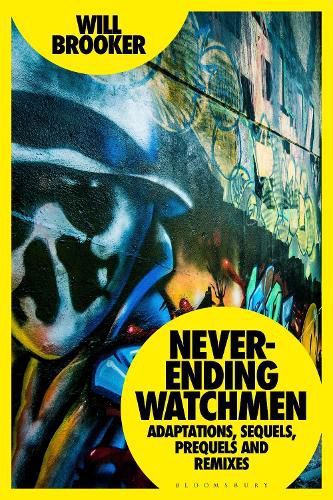Readings Newsletter
Become a Readings Member to make your shopping experience even easier.
Sign in or sign up for free!
You’re not far away from qualifying for FREE standard shipping within Australia
You’ve qualified for FREE standard shipping within Australia
The cart is loading…






What began with Alan Moore and Dave Gibbons' landmark graphic novel, Watchmen (1987) is no longer a single story, but rather a cross-platform, multi-media franchise, including a role-playing game and video game, a motion comic, a Zack Snyder movie, and a series of comic book prequels and sequels, as well as a prestige HBO TV series.
Will Brooker explores the way that Watchmen expanded over time from the mid-1980s to the present day, drawing on theories of adaptation, intertextuality and deconstruction to argue that each addition subtly changes our understanding of the original. Does it matter whether these adaptations are 'faithful'? Can they ever be, as they cross over into another medium? How does each version enter a dialogue with the others? And as Damon Lindelof's series ran parallel to an entirely distinct comic book Watchmen sequel, Doomsday Clock, how do readers and viewers make sense of these conflicting narratives? Can we relate the unstable, shifting stories of Watchmen to our contemporary climate of post-truth, where we have to weigh up contradictory versions of the facts and decide which we believe?
$9.00 standard shipping within Australia
FREE standard shipping within Australia for orders over $100.00
Express & International shipping calculated at checkout
What began with Alan Moore and Dave Gibbons' landmark graphic novel, Watchmen (1987) is no longer a single story, but rather a cross-platform, multi-media franchise, including a role-playing game and video game, a motion comic, a Zack Snyder movie, and a series of comic book prequels and sequels, as well as a prestige HBO TV series.
Will Brooker explores the way that Watchmen expanded over time from the mid-1980s to the present day, drawing on theories of adaptation, intertextuality and deconstruction to argue that each addition subtly changes our understanding of the original. Does it matter whether these adaptations are 'faithful'? Can they ever be, as they cross over into another medium? How does each version enter a dialogue with the others? And as Damon Lindelof's series ran parallel to an entirely distinct comic book Watchmen sequel, Doomsday Clock, how do readers and viewers make sense of these conflicting narratives? Can we relate the unstable, shifting stories of Watchmen to our contemporary climate of post-truth, where we have to weigh up contradictory versions of the facts and decide which we believe?